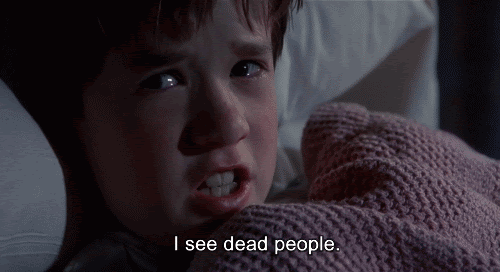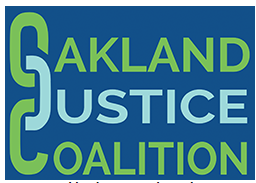Why do you support CDP?
Hi, I’m Mark! I’m one of CDP’s newest members. Why do I support CDP? It’s a question that could be answered a few ways. I’m certainly interested in capital-J Justice (after all, if people’s money is being collected by the government, why shouldn’t they decide where it goes?). I’m no less interested in its practical benefits (that money could do a lot of good for a lot of people!). For the moment, though, I’ll settle on another reason: I’m fascinated by the idea of participatory budgeting, and CDP is good to think with.
|
 |
|
I say this in part because I spend so much time with citizens of states who actually practice participatory, democratic budgeting. For them, it’s not an abstract concept, but rather something done over a period of years or decades—really, something they do from cradle to grave. What is decided on isn’t trivial, but is instead of the highest importance. Shall we pay for the army this year? How much free food will we provide to the poor? Do we really need that expensive stadium? There’s a problem, of course (and this is an M. Night Shyamalan-level twist): my participatory democrats are all dead (like 2,000+ years dead). I’m an ancient historian who studies Athenian democracy.
|
 |
|
| CDP, however, is very much alive. And working with them has set me to thinking on all sorts of problems of popular budgeting. Take for instance something like “epistemic sufficiency” (or more lucidly, “how much do people need to know to do things well?”). Here, participatory budgeting runs into immediate, passionate objections from many otherwise sensible people: “ordinary people don’t know enough to have a direct hand in public spending!”. On the one hand, it is something elitists say every day. Certainly, academics are implicated here. Worse than vocal detractors, however, is the fact that this fear has simply become commonsense. Still, it’s not crazy to wonder, “is my next-door neighbor REALLY smart enough to decide on infrastructure spending?”. After all, I don’t know many people who personally have the knowledge, skill, or inclination to personally decide on a wide range of major political issues. |
|
 |
|
One answer to this is the “wisdom of crowds” approach (i.e. it’s hard for one person to guess the number of jellybeans in a jar, but the average of 1,000 people’s answers tends to get quite close). But I prefer to come at it from the incentive angle: why would they know how to? They’ve never been given a chance. It’s my experience that people don’t bother to read up much on things unless there is a pretty concrete problem at hand. An example: I once took a class on paleography (a fancy term for “reading medieval latin books”). It was awful. We were assigned a textbook with illustrations, and dense descriptions of “Carolingian miniscule script” with its clubbed ascenders and its restrained use of ligature. I remembered exactly none of that after reading. When I made it to class, George Brown—a good scholar but a bad teacher—repeated what was in the textbook for another two hours. Again, nothing. I only learned something about those absurd letters when we were assigned a final project: “tell me everything you can about this single page of text”. Something tangible. I sat down and reread my textbooks, now with a purpose, and to the extent I know anything about this now (and that remains an object of deep uncertainty), it was because I had had to solve a real problem. Public budgeting is the same way.
|
|
 |
| So in supporting CDP, I like the fact that I am not only placing faith in people’s existing knowledge (they’re smarter than the naysayers think, especially in groups!), but also supporting a plan to make them smarter—in part by giving them a reason to give a shit in the first place. |
|
|
 |
What OJC Canvassing Kick-Off
When SAT 04/02 11:00-2:00PM
Where 349 Mandela Pkwy
CDP is a proud member of the Oakland Justice Coalition. While we are not yet launching our campaign, join us to gather signatures for our three endorsed ballot initiatives! We’ll do a short training on how to get signatures and then hit the streets. Bring a car if you are able!
The Oakland Justice Coalition is a coalition of organizations and individuals that grew out of a series of public forums hosted by the Oakland Alliance.
Find more information about the event here
|
|
|
 |
What “Union Strategizing” with Gabriel Haaland
When Sun 04/03 6:30-7:30PM
Where Omni Commons (upstairs)
This week, we will hear from Gabriel Haaland, the Political Coordinator at SEIU Local 1021, about his experience organizing with the union as well as his experience working on Participatory Budgeting as resident of Vallejo and former resident of San Francisco.
As always, light food will be provided- feel free to bring something to share with the group. Our weekly strategy meeting will follow from 7:30-9:30PM
Find more information about the event here
|
|
|
 |
What CDP Street Outreach
When Sat 04/09 1:00-4:00PM
Where Café Dejéna
(near MacArthur BART)
Next Saturday we’re taking it to the streets to talk about CDP. We want to engage the people of Oakland in civic conversations about their vision for Oakland, and what kind of city they want.
We’ll meet at 3939 MLK Jr Way at Café Dejena. There will be a short training and we’ll break out into small groups to talk directly with Oakland citizens. After that we’ll come back together to share our experiences. All are welcome – just come ready to chat it up!
Email us to RSVP
|
|
|
|
0 Comments